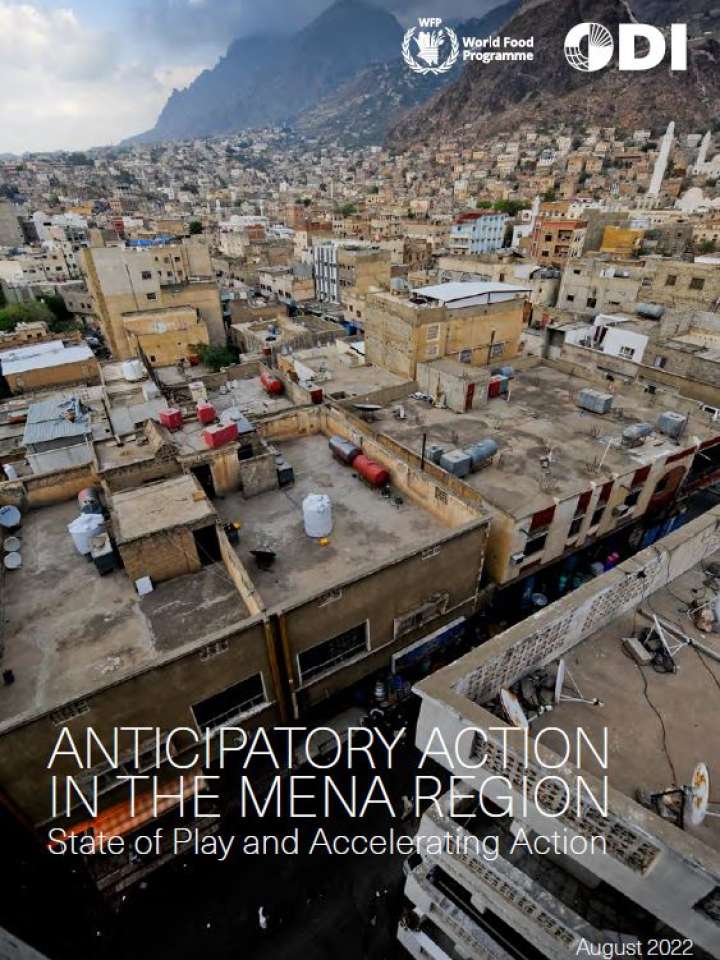Anticipatory action in the MENA region: State of play and accelerating action
This report summarises the findings of a World Food Programme (WFP)-commissioned project that establishes a baseline of anticipatory action (AA) capacities and experiences in the Middle East and North African (MENA) region. The report provides an overview of opportunities and challenges for AA in the MENA region, in order to produce compelling options and evidence to inform decision-makers about AA in the context of MENA. AA represents an important opportunity in the MENA region because of its potential to help avoid and reduce the impacts of disasters, which are expected to become more frequent and intense as a result of climate change and conflict. However AA is still nascent within the region, so there are multiple challenges that need to be navigated.
This report makes the following key findings on the state of play of AA in the MENA region:
- Efforts are being made to enhance forecasting and risk information.
- Important foundations for risk management are not in place in many countries in the region, which presents a challenge for advancing AA.
- Despite the nascent stage of AA in the region, a continuum of options is available to help advance AA, ranging from incremental changes to full reform of disaster risk management systems.
The following recommendations build on and aim to address the key findings of this report:
- Enhancing forecasting and early warning systems to enable timely action is relevant for the MENA region and should be part of an agenda that accelerates and scales up AA.
- Increasing awareness and a better understanding of the benefits, costs and opportunities of AA will be necessary to integrate it into broader risk management efforts in the region.
- For AA to be effective, foundational investments in risk management are needed, particularly in relation to policies, planning and coordination of AA to mitigate predictable risks.
Explore further
